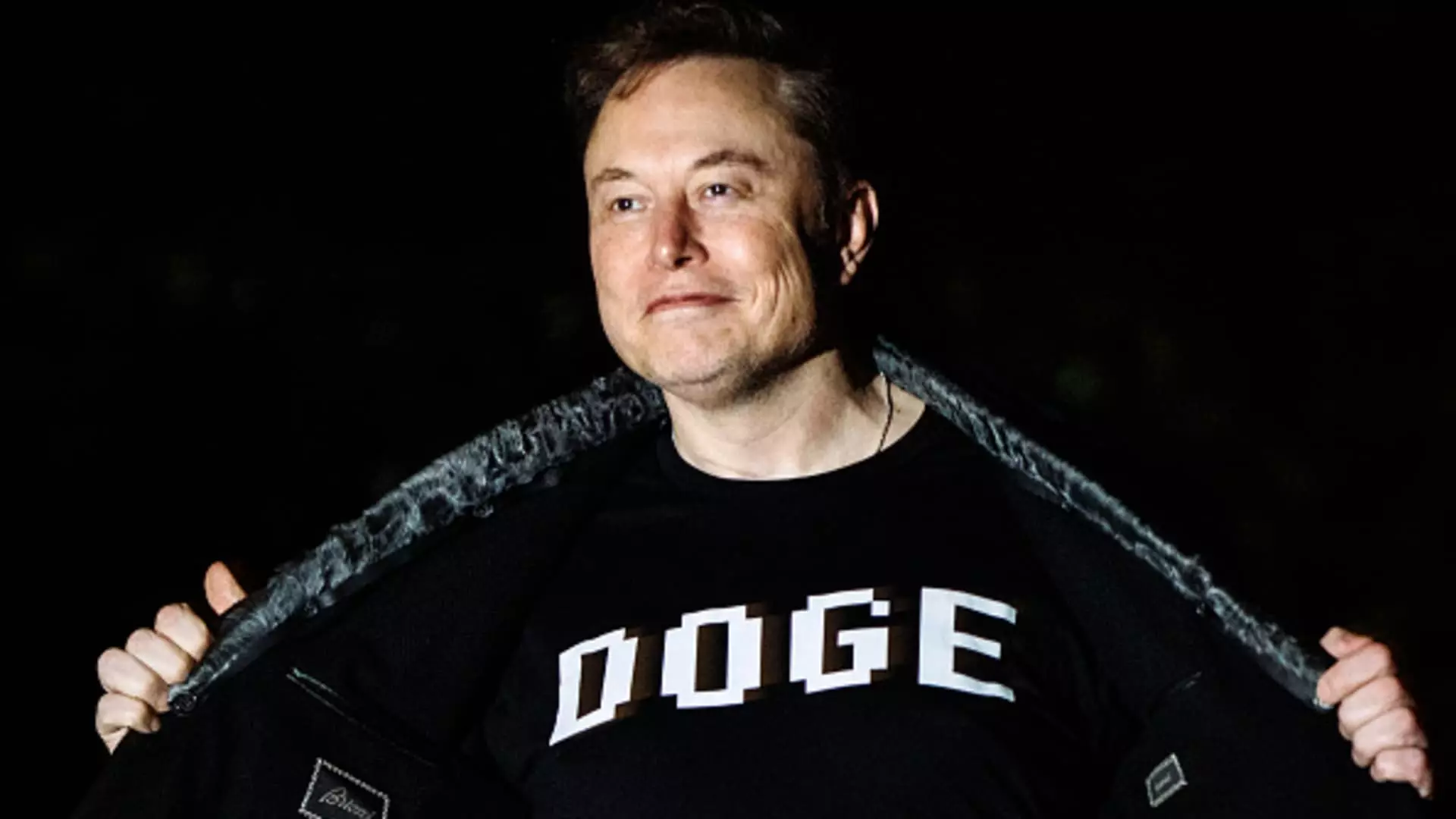Tesla Inc. is sailing through a stormy period, marked by fluctuations in its stock performance that reflect the broader concerns surrounding the company’s fundamental health. Recent reports suggested the potential withdrawal of CEO Elon Musk from his controversial role with the so-called Department of Government Efficiency. This possibility triggered a temporary 5% spike in Tesla’s shares. However, the stock’s overall trajectory paints a more unsettling picture; it has plummeted over 31% so far this year, with the first quarter showcasing a staggering 36% dip, marking the largest quarterly drop since 2022.
The inconsistency in Tesla’s vehicle deliveries serves as a glaring red flag. Reports indicate that the latest figures fell short of expectations, heightening investor anxiety. The reality is that while the glimpse of a more focused Musk on Tesla may induce short-term optimism, the underlying issues cannot be overlooked. With a monthly loss of over 5%, the stock market is signaling a deep sense of uncertainty about Tesla’s future.
Musk’s Political Undertakings: A Double-Edged Sword
Musk’s entanglement in political affairs is proving to be a contentious issue that weighs heavily on Tesla’s image and stock price. His involvement with the Trump administration resonates with mixed responses; some see it as an opportunity for enhanced influence, while others view it as a significant distraction. The backlash has manifested in various forms—protests, boycotts, and even violent incidents targeting Tesla stores and vehicles around the globe. This wave of negativity suggests that having a high-profile role in government may not be as advantageous for Tesla’s image as initially assumed.
Furthermore, the impact of political nuances, such as Trump’s automotive tariffs, complicates Tesla’s operational landscape. The tariffs pose risks to Tesla’s supply chains, critical to its production capabilities, particularly with significant suppliers based in Mexico and China. Hence, the narrative surrounding Musk’s political ambitions cannot be dismissed lightly; they are inextricably linked to Tesla’s fiscal realities.
Musk’s Personal Investment in Political Outcomes
Musk’s proactive engagement in political campaigns—exemplified by his financial backing of certain candidates and ground events—reflects his intertwined interests in both government and business. His comments at a recent rally highlighted his frustrations with the volatility of Tesla stock and the heavy toll his dual-focus is taking on his core business. “This is a very expensive job,” Musk lamented, illustrating a clear division between his political aspirations and his responsibilities at Tesla.
As political opponents leverage his high visibility to critique both his financial influence and his business practices, Tesla finds itself at a crossroads. There exists a palpable tension as public perception shifts; what might have been seen as personal branding opportunity is now being interpreted as a liability. For investors, the focus is shifting—Tesla cannot afford to be just another pawn in the political chess game.
In an environment where innovation and market agility determine success, Tesla’s leadership must strike a difficult balance. The question looms large: Can a company as trailblazing as Tesla still thrive amidst such distractions? In the competitive EV market, the answer to this question could define the company’s path forward.

